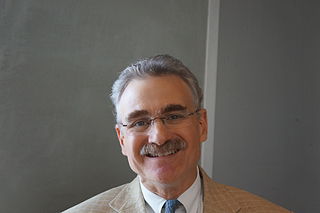A Quote by David Crystal
Ever since the arrival of printing - thought to be the invention of the devil because it would put false opinions into people's minds - people have been arguing that new technology would have disastrous consequences for language.
Related Quotes
You can say that all you want, but even in the little time that I've been in this industry, I've learned that it isn't exactly what you expect, so you've got to have a level head. I thought people would dig it. I thought people would enjoy it. It's AMC. I thought people would be fans. But, I did not think we would be the best new show on television.
Filmmaking materials are in the hands of more people now than ever before. I would like to think that the more people have these tools, the more people will learn how to use them, it's another argument I would argue for, personally, for art's education. Because there are kids who aren't that literate in screen language and they've got to know how people select shots, how people edit audio, how people combine things to make what they see on the screen. It would be like the 15th century or the 16th century in Germany, and somebody amends a printing press and you don't know how to read and write.
Anyone who has studied the history of technology knows that technological change is always a Faustian bargain: Technology giveth and technology taketh away, and not always in equal measure. A new technology sometimes creates more than it destroys. Sometimes, it destroys more than it creates. But it is never one-sided. The invention of the printing press is an excellent example. Printing fostered the modern idea of individuality but it destroyed the medieval sense of community and social integration.
This new war, like the previous one, would be a test of the power of machines against people and places; whatever its causes and justifications, it would make the world worse. This was true of that new war, and it has been true of every new war since... I knew too that this new war was not even new but was only the old one come again. And what caused it? It was caused, I thought, by people failing to love one another, failing to love their enemies.
Historically, the idea that you take something novel and you break it has been seen as the ultimate rejection of Enlightenment values, of progress, of civilization - because how could you possibly move forward if you break technology? I think that that misses the point, that if you introduce any kind of technology, what you're introducing is a new way of living and the consequences of that new way of living for people who were enmeshed in a different way of living need to be thought through.
Truth may perhaps come to the price of a pearl, that showeth best by day; but it will not rise to the price of a diamond or carbuncle, that showeth best in varied lights. A mixture of a lie doth ever add pleasure. Doth any man doubt that, if there were taken out of men's minds vain opinions, flattering hopes, false valuations, imaginations as one would, and the like, but it would leave the minds of a number of men poor shrunken things, full of melancholy and indisposition, and unpleasing to themselves?
They say people can think for themselves? Do you honestly believe that the chap who can’t pass primary six knows the consequence of his choice when he answers a question viscerally, on language, culture and religion? But we knew the consequences. We would starve, we would have race riots. We would disintegrate.




































